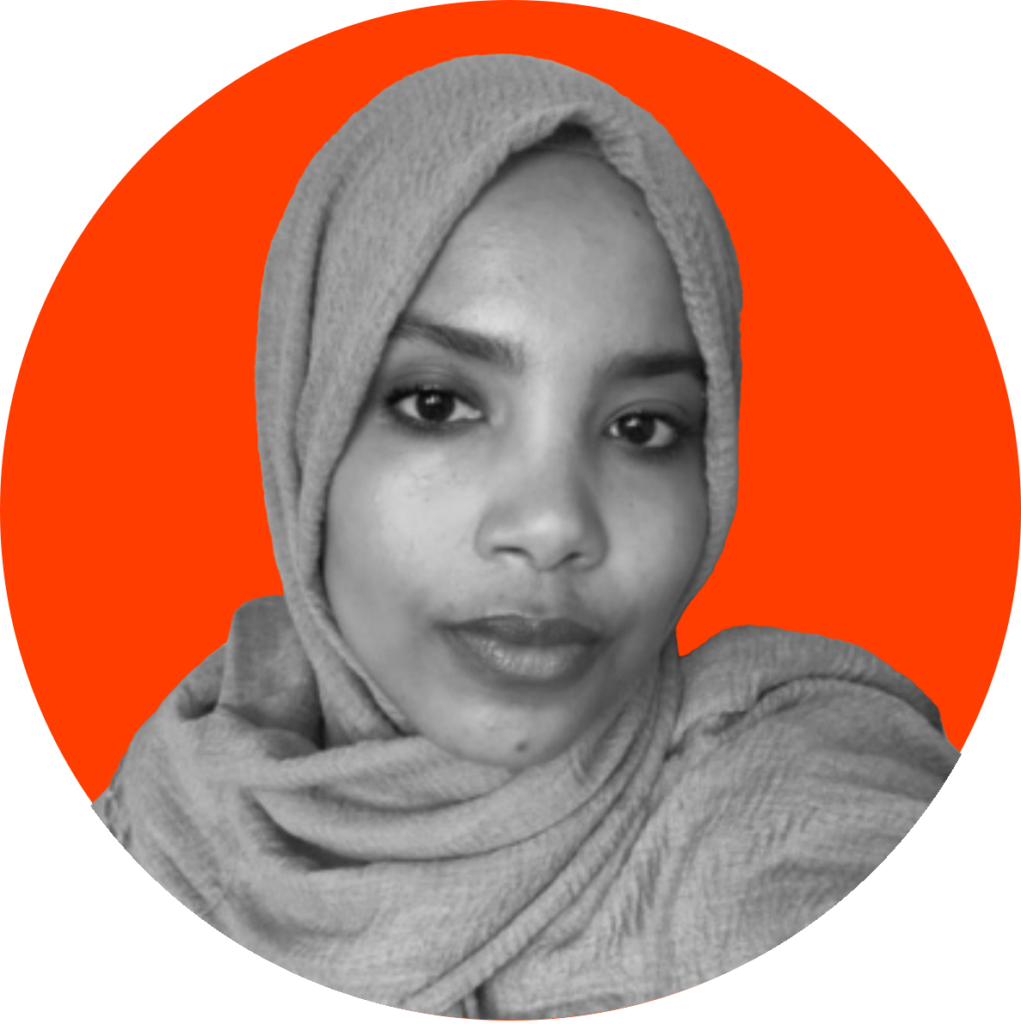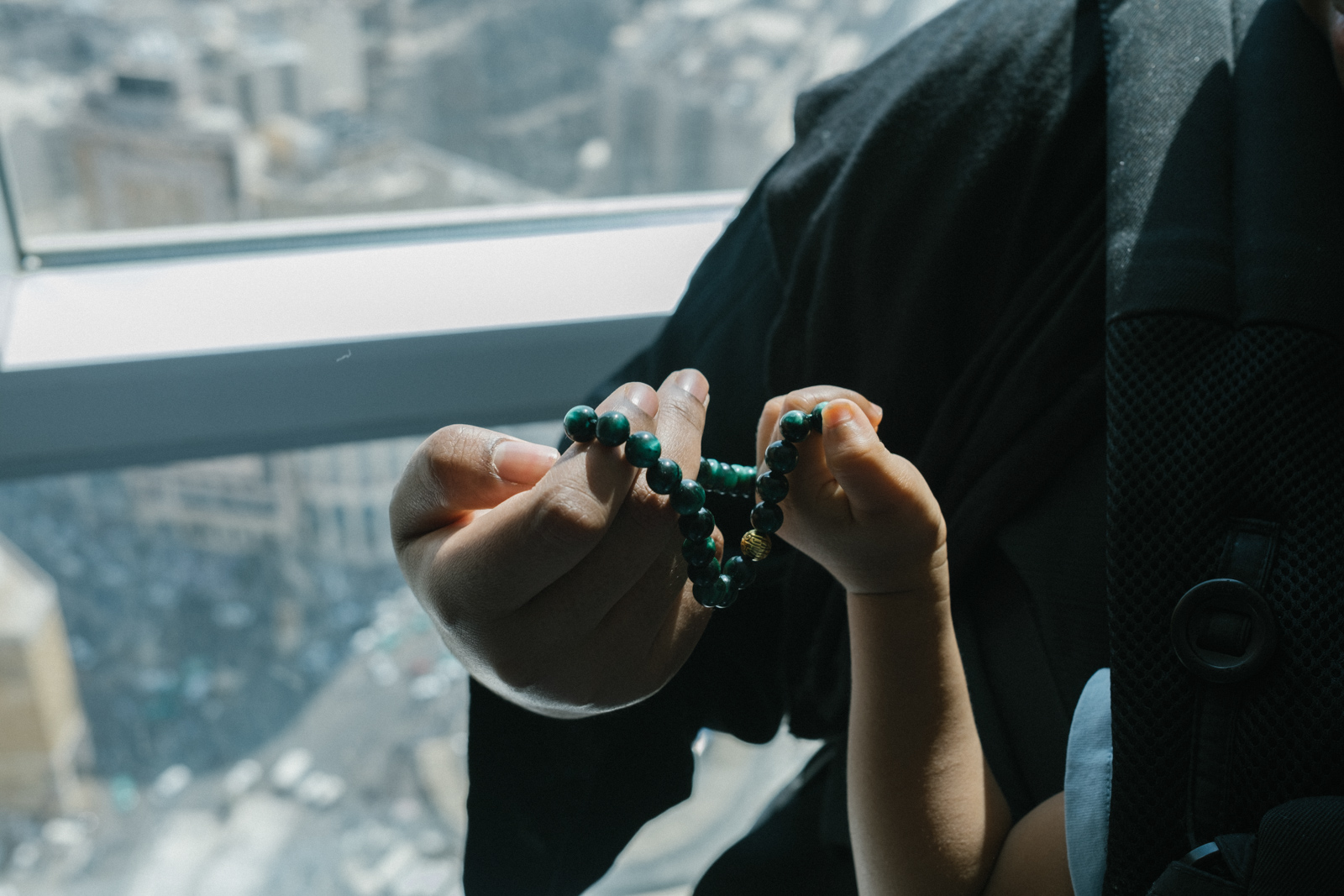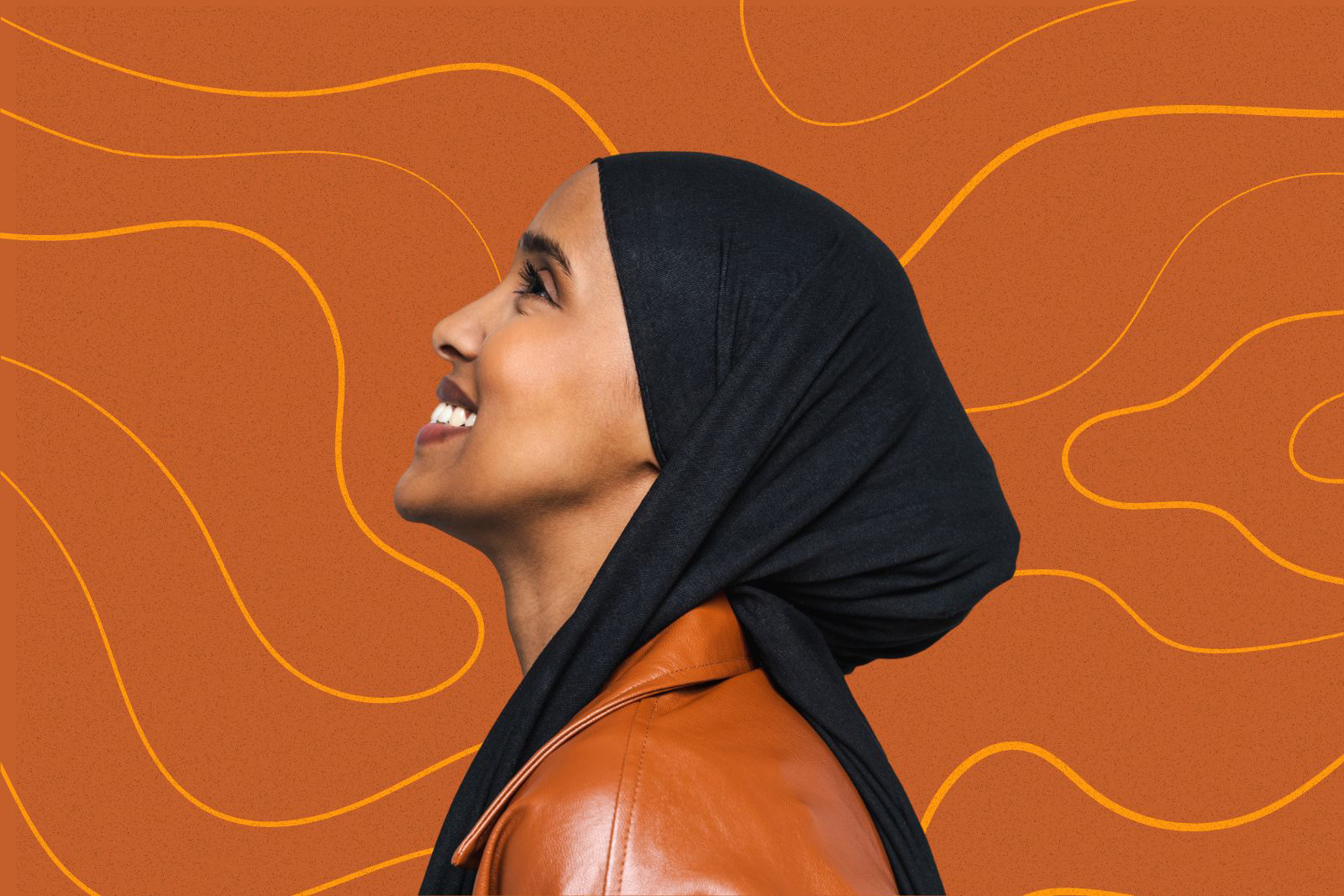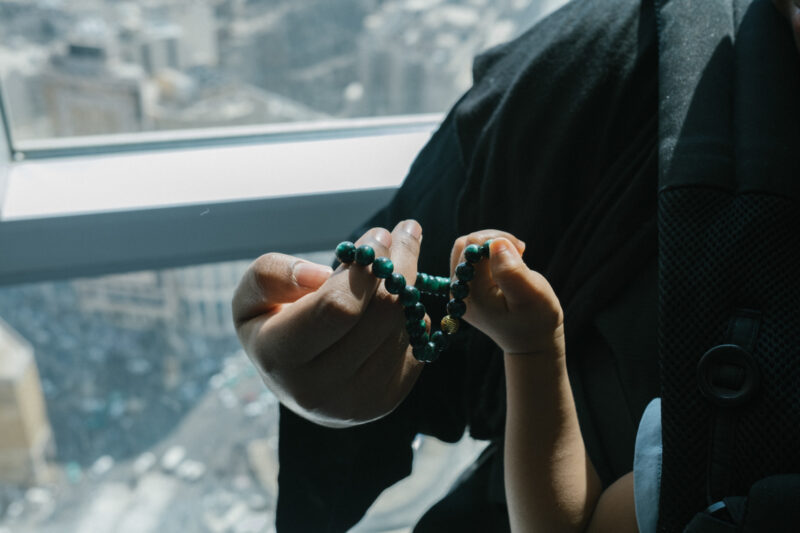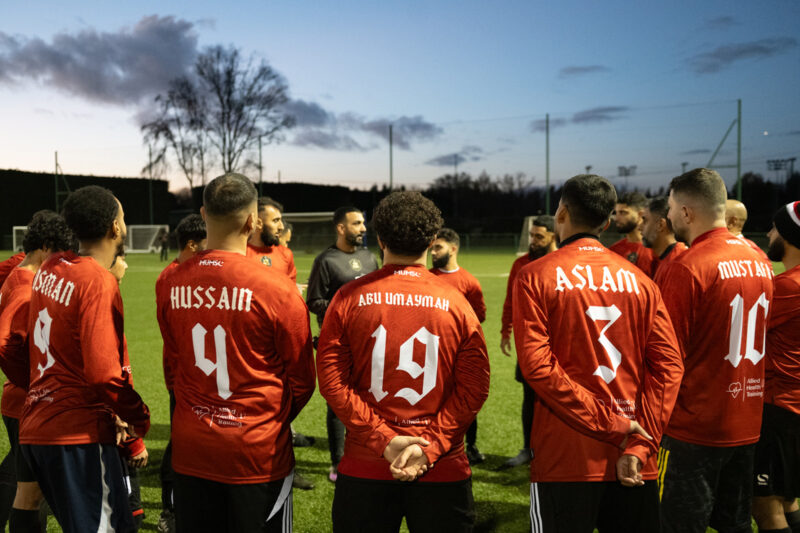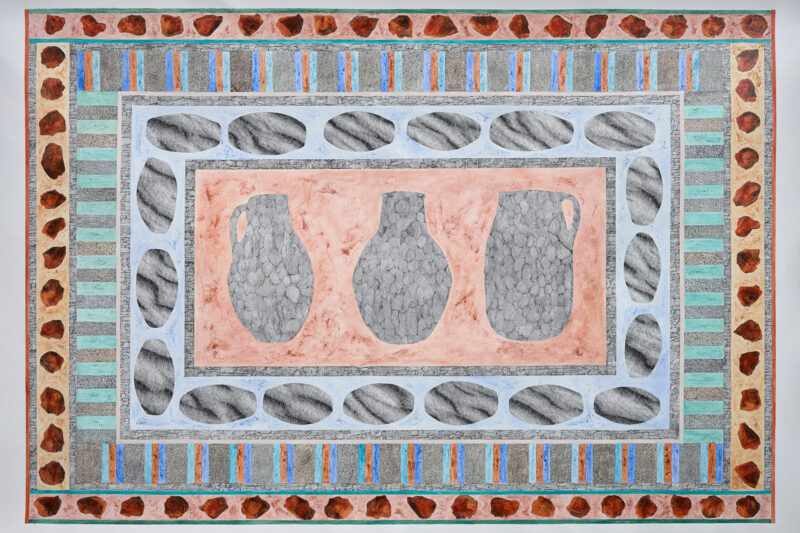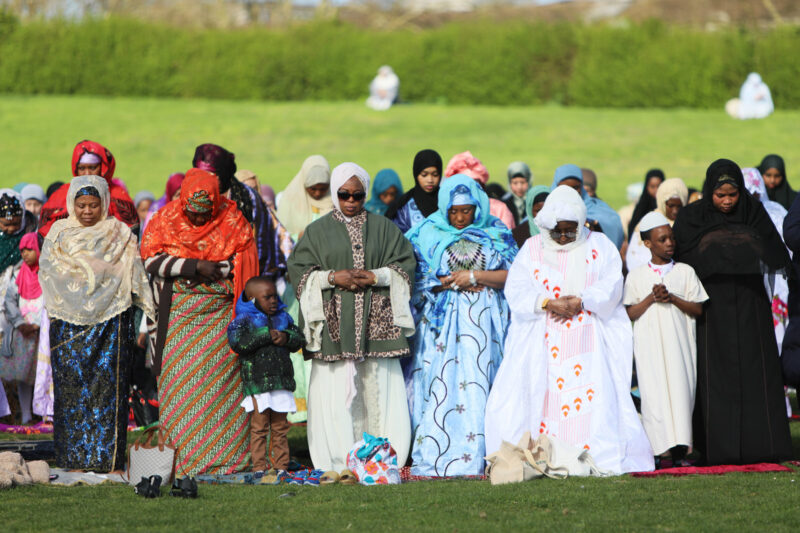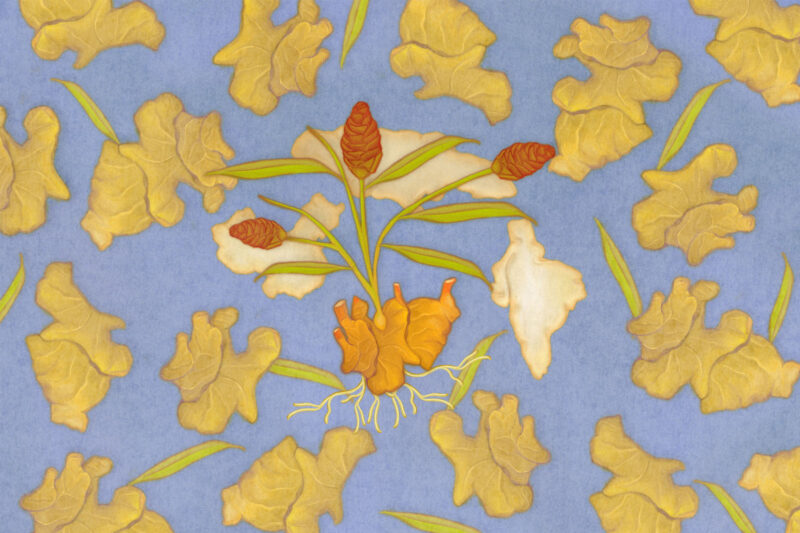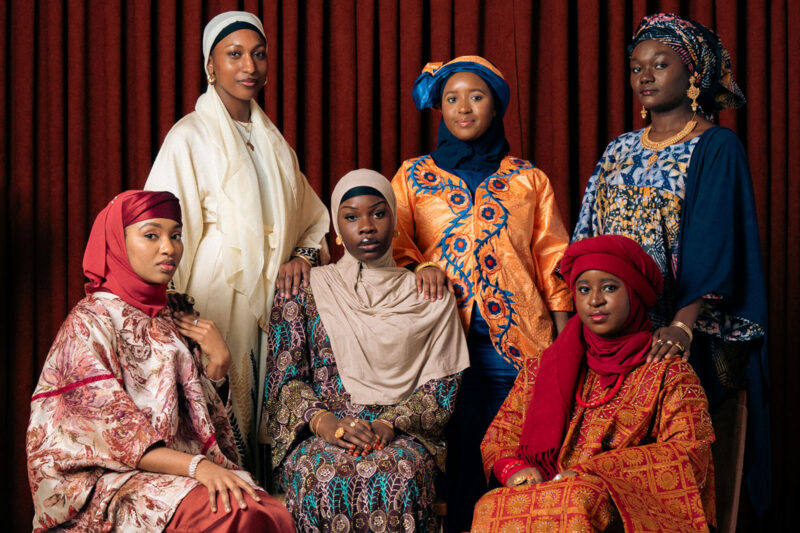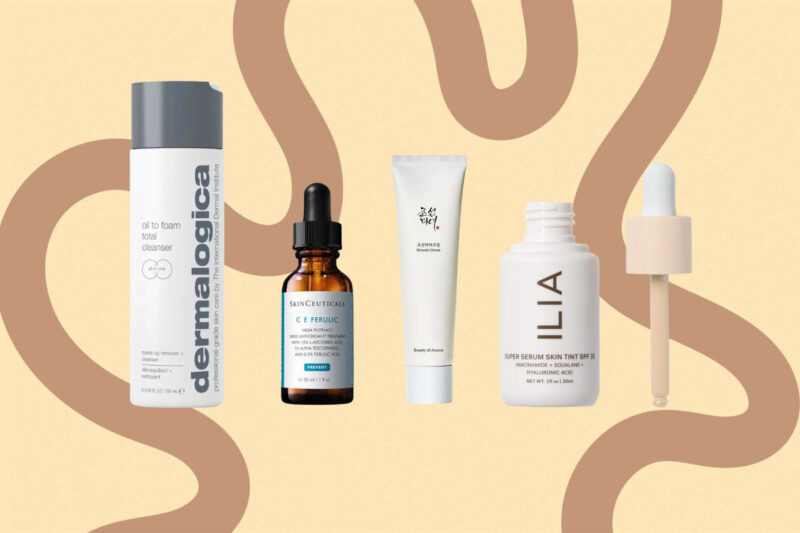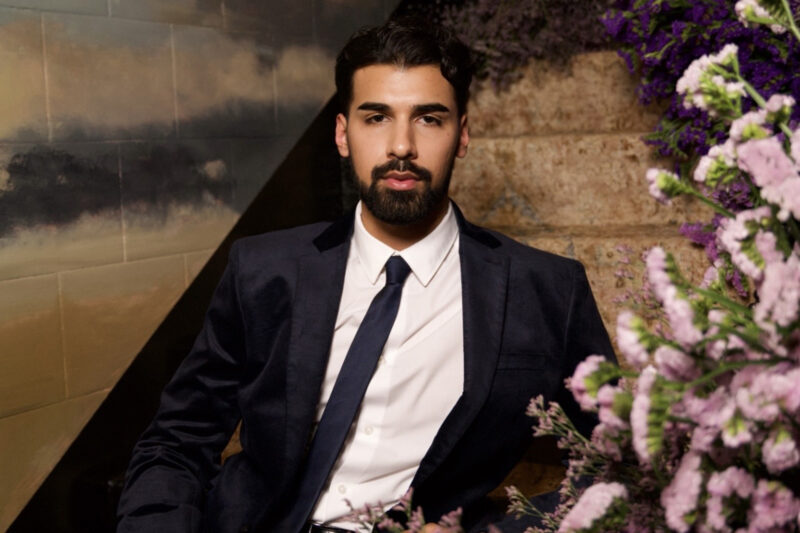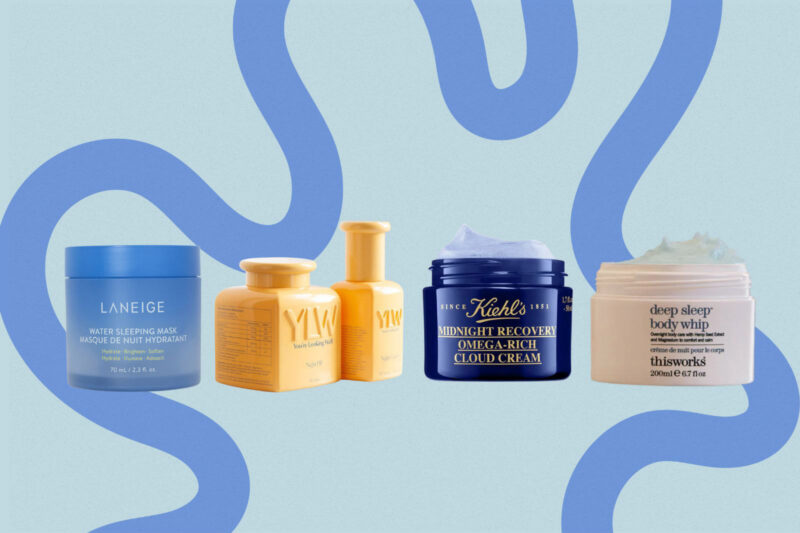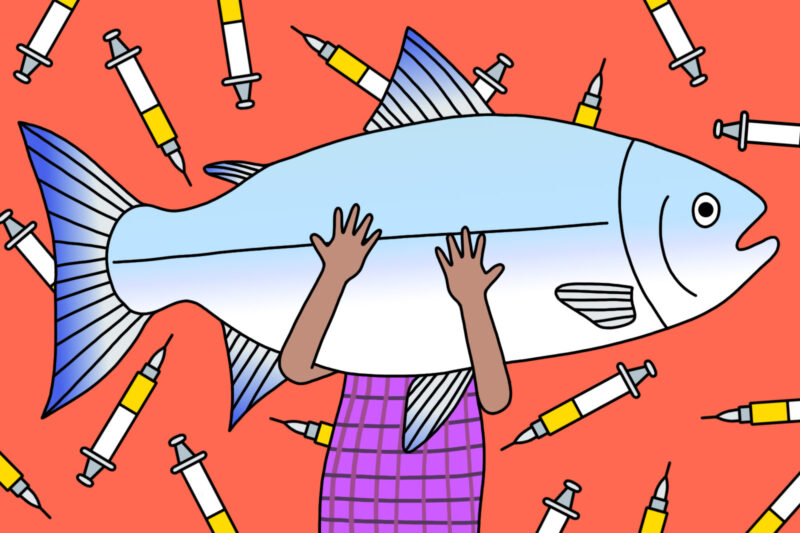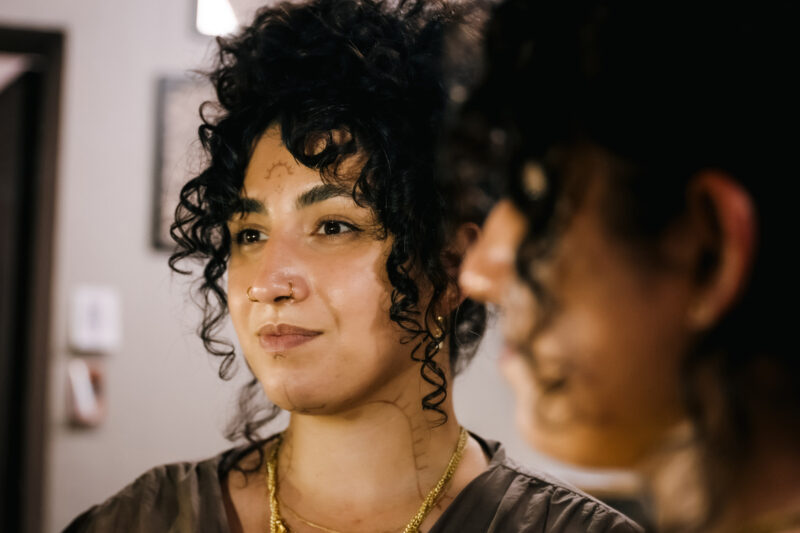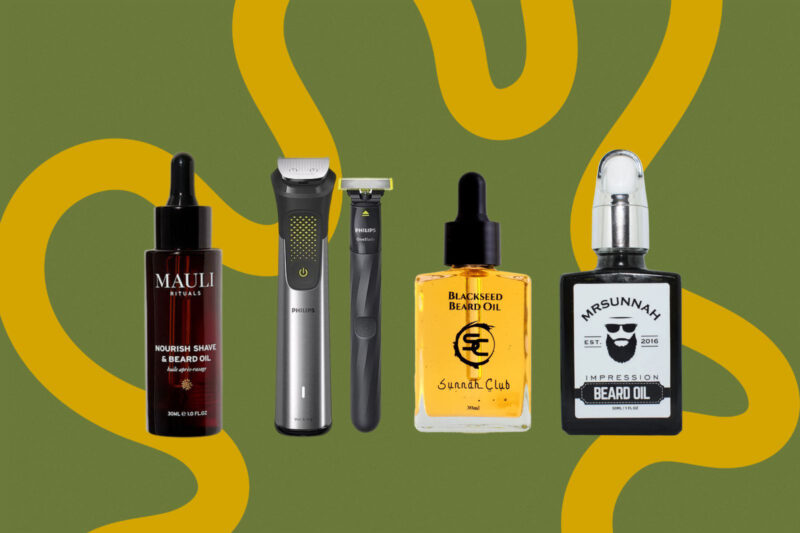How performing Umrah changed my relationship with beauty
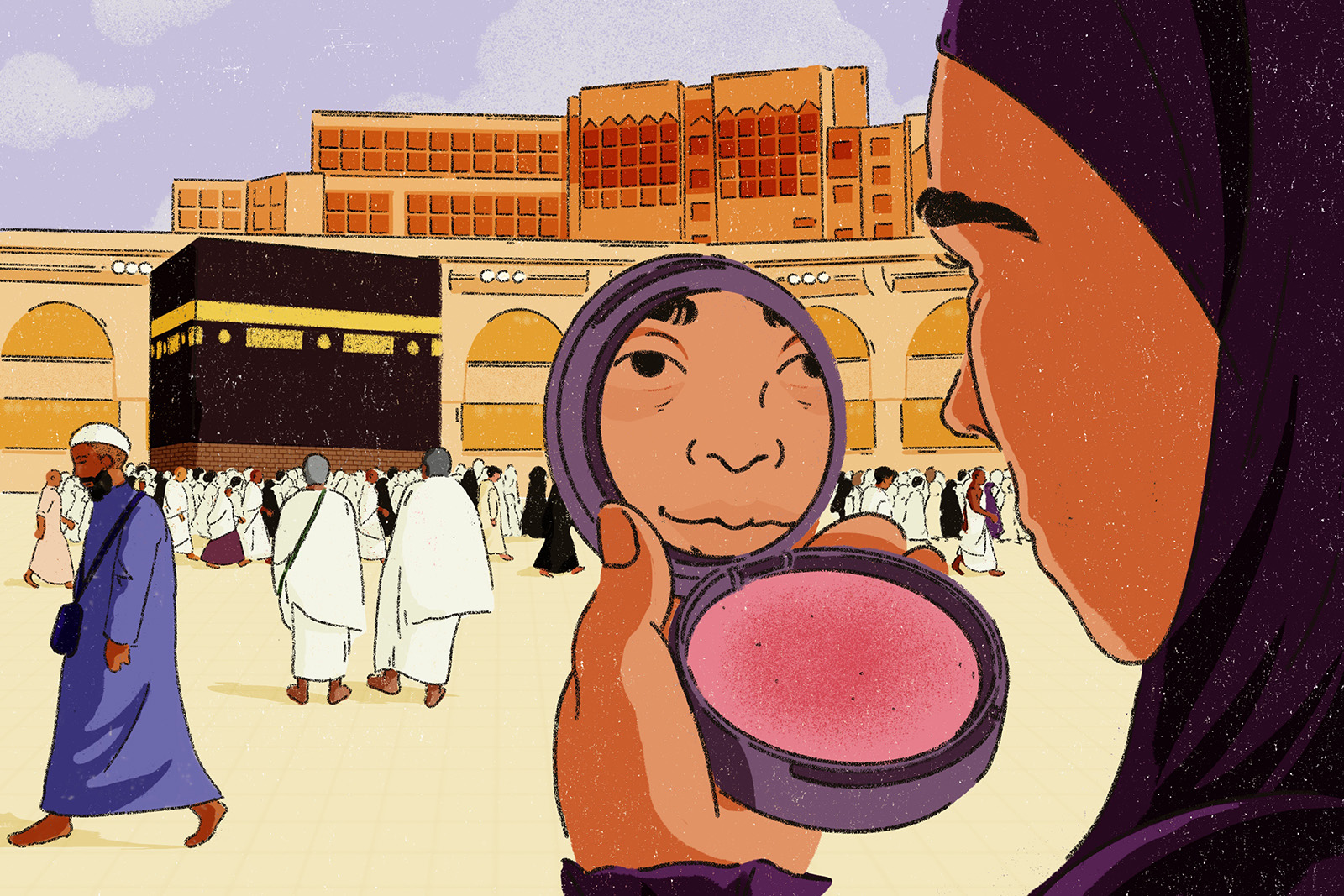
A beauty journalist reflects on a life-changing trip to Mecca, and having to leave her products behind
You never forget your first Umrah. Mine was during Ramadan 2022. It felt like an immense privilege to be called during the sacred month but with that came the pressure I put on myself to perform my Umrah perfectly.
I had stocked up on all the guides and made meticulous notes on the routines of the ritual, from what I needed to do to get my body ready, to the specific duas I was required to memorise for each step. I was clearly a newbie, but it wasn’t the suitcase full of “How to perform your first Umrah” books that gave me away. It was the overflowing toiletry bag. Five tinted lip glosses, a tinted moisturiser, an eyebrow pencil and a special perfume just for the trip. I guess it was the beauty journalist in me.
My relationship with beauty has touched all aspects of my life. It’s never been just work, it’s part of my daily routine. The boundaries between personal and professional blurred to the point of non-existence. But the relationship is complicated. I hold so many critical thoughts about the industry, and yet I still find pleasure in the ritual.
Growing up, beauty had always been a rare luxury. There were no makeup products in our house, so when I did get my hands on something I would have so much fun experimenting with it, inspired by the glossy magazines I spent my weekends digesting. That joy stuck with me. Then, as I began to work in the industry, some of the allure faded as I learnt about the harmful way beauty standards and expectations operated in our lives, especially for Black and brown women.
Still, I continued to enjoy the soothing process of applying products each morning and night, and reading around the science and innovation behind them.
As part of Umrah, all of this is strictly off limits: no perfume, no makeup. To enter ihram — the sacred state of purity, both physical and spiritual — I had to strip back my routine to its barest essentials. No flattering shades, no signature scents. And yet my bag was still full, because in the back of my mind I thought I’d find a way to cling to those familiar rituals outside the times of worship. I was trying to bring along a version of myself I thought these beauty practices maintained.
I remember one afternoon, I arrived for Asr prayer, laid my mat under a fan and didn’t leave until the next day. I had everything I needed: no shortage of food or drink, people almost competing to offer you something as an act of generosity. I read more Qur’an than ever before, made duas, and somehow found focus despite the noise and movement around me.
My beauty routine was non-existent. No reapplying lip gloss, no checking how my base was holding up in the scorching heat. It was freeing — not in the cliched “holiday from makeup” way — but because it released a small, constant mental load that I could redirect into worship.
I’ve tried to put my experience of Mecca into words, but nothing quite captures it. It doesn’t feel like arriving in a new city, it’s like stepping into another realm. The imposing mountains, the juxtaposition of sacred ancient sites with luxury hotels, the constant swirl of birds above the mosque, the souqs buzzing at all hours. Everything is amplified and somehow, whether through spiritual charge or the sheer energy of the place, you find yourself alert enough to complete another set of prayers at 3am.
Despite our being Muslims from all over the world, there was no need for formal introductions among us. Instead, there was an immediate sense of familiarity and belonging, which made it easier to let go of my usual beauty rituals. Together we were ditching the pressure to appear a certain way.
I had very little sleep and the dark circles around my eyes had deepened, but instead of concealing them I accepted them. I’d reacquainted myself with my bare face — without makeup, without the scaffolding of products I’d once believed were a daily essential. I still felt like myself without them.
Beauty is marketed to us as an identity, shaped by algorithms, trends and collective expectations. We aren’t just sold lipsticks and blushes — we’re sold aspirational versions of ourselves. A blush isn’t just a blush, it’s “radiance” or “confidence”.
Since returning from that trip, I find myself reaching for my beauty bag less. I no longer feel the same pressure to make up my face to present a curated version of myself to the world. I see now that beauty doesn’t define my value, nor does it define me — and oddly enough, that’s made me a better beauty writer.
 Newsletter
Newsletter

